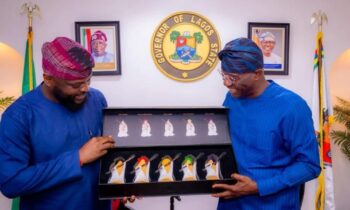The Nigerian Communication Commission (NCC) says it is necessary to nurture a generation of Information and Communication Technology (ICT) specialists equipped to handle the complexities of digital economy.
Aminu Maida, the Executive Vice-Chairman, NCC, said this during the 2nd edition of the West African Telecoms Infrastructure Summit and Exhibition on Friday in Lagos.
Maida, represented by Victor Adoga, Head, Next Generation Technology and Standards, NCC, said developing local talents was crucial to adapting to emerging technology trends.
On emerging trends, he said the rollout of 5G networks was a transformative trend in telecoms infrastructure.
According to him, 5G promises higher speeds, lower latency and greater capacity, facilitating new applications such as Internet of Things (IoT), autonomous vehicles, smart cities and advanced augmented reality.
“The future beyond 5G, looking towards 6G, suggests further enhancements in network capabilities and the integration of Artificial Intelligence (AI) to manage network operations and service delivery.
“It requires substantial investments in both hardware and spectrum allocation.
“With Internet of Things (IoT), everyday objects are connected to the internet, gathering and sharing data,” he said.
Maida said that the 6G revolution would transform industries from agriculture to healthcare, creating efficiencies and improving lives.
According to the NCC boss, for telecoms, it means massive increase in connected devices and shift in data management strategies.
Maida also said that the backbone of any robust digital economy was its fiber optic network,
He stressed that expanding fiber optic infrastructure was essential to increasing bandwidth and improving internet quality across Nigeria.
On data localisation and security, he said that there was the need to protect and manage the vast amounts of data generated as digital services grew.
Maida said that strengthening data security measures and establishing data centres locally would be crucial in maintaining user trust and complying with global data protection regulations.
He also noted that to delve into these trends, strategic actions such as partnerships between government, industry, and academia to drive innovation and development must be considered.
Maida added that such collaborations could lead to sharing infrastructure models that reduced costs and improved service delivery.
He said that developing telecoms infrastructure required capital, adding that public-private partnerships, infrastructure funds, and innovative financing models like Infrastructure as a Service (IaaS) could be key to meeting financial demands.
“Another thing is to build our infrastructure, and sustainability must be a priority. This includes not only environmental considerations but also building systems that are economically and socially sustainable.
“Integration with AI and machine learning to optimise network management, predict maintenance needs, and enhance customer service through automation and advanced analytics is also necessary.
“Another strategy is developing smart infrastructure, because as cities become smarter, telecom infrastructure must evolve to support an array of smart city applications, from traffic management systems to public safety solutions,” he said.
Speaking on challenges in the industry, Maida said: “Today, we boast of over 219 million mobile subscribers and a burgeoning tech-savvy population eager to harness digital technologies.
“However, while our growth has been remarkable, it has not been without its challenges.
“Issues such as uneven service distribution, infrastructural deficits, and regulatory uncertainties have occasionally hindered our progress.
“Yet, each challenge also presented a unique opportunity for growth and innovation,” he said.
Maida said that how this path was navigated would determine the role Nigeria played in the global digital landscape. (NAN)




